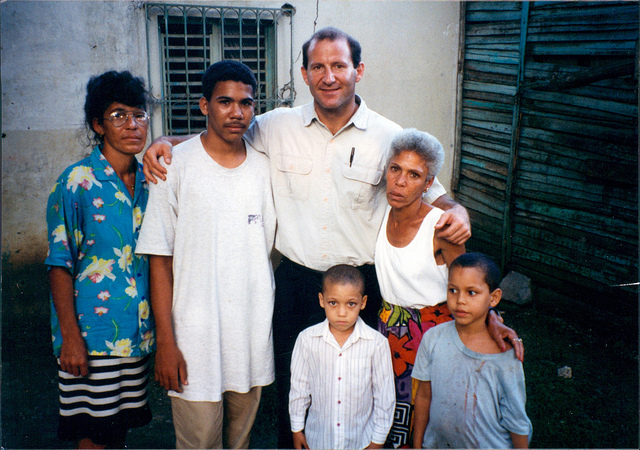
“Halfway home” is one of the mental health institutions around Colombo I volunteered with.
It is a place for women who have been institutionalized by their families and never “collected” or “re-claimed,” as it was phrased by staff working there.
Amid the insurmountable amount of images that flood my mind when I think of my experience there, the memory of one particular woman conquers all and takes center stage.
Standing still, her eyes screamed defiance and subliminally conveyed, “You come here to help me, with your condescending smiles and your privileged backgrounds, democratic rights, egalitarian principles and notions of altruism. You look at me, recognize very little in me that resembles your preconceived understanding of women and on top of all the injustice that has plagued my life, you now come here to flatter your ego at my expense. Let me give you a little token, a memory to keep.”
She laid down on the floor, opened her legs and started to masturbate. As I passed by her she looked straight into my eyes, and the smirk on her face suggested awareness. Her behavior altered my perception of my role there. It made me reflect on the work that we were doing.
This woman was my guru, she was my teacher.
There are now several organisations in Western countries that have designed programmes to help recent graduates kick start their careers. These organisations encourage a simple and effective quick-fix strategy, a toolkit if you will, for those whose resume is lacking in life experience. These programmes essentially sell one thing: “Hop on a plane to ‘this or that’ developing country, ‘doing this and that’ to land you the job of your dreams or to get you into graduate school.” These buzzing businesses are thriving in our current economic climate where graduates desperately seek ways of pimping up their resume.
If this was a win-win situation, one would see no harm in creating these opportunities for exchange. However, when one looks at the actual work that is done in some of these voluntary work placement schemes, one wonders about the quality of this experience.
In response to my perception of that woman’s behaviour, I asked myself, what am I substantially giving in exchange for the flashy stuff that I will in turn get to squirt onto my CV?
Are we taking more than actually giving? Is this form of exchange, this global citizen’s trendy and novel idea of cross-cultural social contracts, an indirect way of gaining the experience we need, to get the money we want at the expense of the people we are supposedly providing a service for?
Is any work really better than no work at all if the quality of the service we are giving is so poor that it is costing the people we are “helping”—like being respected, not being patronized, being cared for in the way people, clients, patients and service users deserve to be cared for?
Just by looking at the history of our glamorous empires we know that we are where we are today because we have stolen from, exploited and drained other countries’ resources. Are we now creating new ways of exploiting people’s humanness?
We know from research that the way you are perceived determines much of how you perceive yourself. Does the work that we are doing reflect what we know? One would think that with all our systems of psychology and theories of political democratization, we would know that empowering and investing in people encourages them to be independent. We also know that the contrary of this robs people of their individuality. Is it not somewhat presumptuous that we stride into these places with insufficient knowledge of the people’s ways, customs, traditions, social and political climate, and in many cases without even a basic knowledge of the local language?
Further, how can we account for our claim to have “helped” or “be helping”? And if we actually have, are they significant and long-term contributions? Aren’t tasks that underestimate people’s capabilities detrimental for well-being? Aren’t we also perpetrators if we abuse systems that have not yet developed ways of protecting their patients? If we are failing to give the quality of service we have promised to give, are we not further abusing of the people we are claiming to help?
It is time that we start paying attention to the quality of the work that is being done. Time to put aside our essentialist and orientalist conceptions of Eastern countries, get over our fascination with misrepresented ideas and ask in practical terms: so what is it that you actually did in your cross-cultural experience? How is your organisation implementing these programmes? How do we know that what you are doing is having a positive and not a negative effect?
The work that we do must be regularised and measured according to the principles and standards we believe to be beneficial if we want to recognise the people that we are being of service to as equal to all people everywhere. Stronger collaborations with locals need to be established if we want agreements to be in the form of exchange and the consequent results must be beneficial both for service-user and service-giver.
It is time that we ask ourselves, is my presence here doing more harm than good?
Relephant Read:
5 Things We Need to Understand before Volunteering.
~
Author: Fabienne Formosa
Editor: Catherine Monkman


Read 1 comment and reply